By Katie Magee
Here at Lemuria we have really been getting into the Vietnam War lately. Our owner, John, absolutely loves Mark Bowden’s new book Hue 1968, and Lisa and I have been indulging ourselves in the works of the beats, Tim O’Brien, and various other counter-culture books written or made popular during the time of the Vietnam War. If you know me, this will come as no surprise, but I sometimes have the feeling that I “missed the bus.” The sixties are a really interesting time to me, because there was so much happening here in the U.S. and around the world that both brought people together and tore them apart. The Vietnam War has such questionable motivations, ones that many people did not support or even understand.
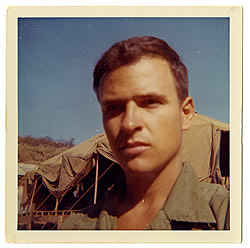
Tim O’Brien during the Vietnam War. Courtesy of the Harry Ransom Center
One man whose voice, I think, is an extremely essential part to the understanding of the Vietnam War, what so many soldiers were dealing with at that time, and why so many people opposed it, is Tim O’Brien.
If I Die in a Combat Zone Box Me Up and Ship Me Home is a book by Tim O’Brien that tells of his time before and during the Vietnam War. O’Brien, like many young men in our country at that time, was drafted into the war. A good part of the beginning of this book tells of O’Brien’s confusion, discontent, and utter lack of support for the war. He contemplates running away to Canada because he so badly does not want to fight in a war that he does not understand nor see as necessary.
 This book is tough; it has a way of making the reader feel many, sometimes awful, feelings. This book is told in stories, through characters, and simply with O’Brien’s very own thoughts and opinions. He encountered some truly horrible people and situations and he does not hold back at all, immersing the reader as much as he can in the horrors and realities of war.
This book is tough; it has a way of making the reader feel many, sometimes awful, feelings. This book is told in stories, through characters, and simply with O’Brien’s very own thoughts and opinions. He encountered some truly horrible people and situations and he does not hold back at all, immersing the reader as much as he can in the horrors and realities of war.
Having read both If I Die in a Combat Zone Box Me Up and Ship Me Home and The Things They Carried, I believe Tim O’Brien truly has a gift for writing about his experience serving in the Vietnam War. O’Brien has showed me a part of the sixties I did not know much about, one that was an ocean away, but still affected so many people. I think both of these books are a vital part of Vietnam literature and show the terrible side of war and what war can do to man. And, of course, who better to write about it than someone who was there and experienced what life was like both before and after the war?


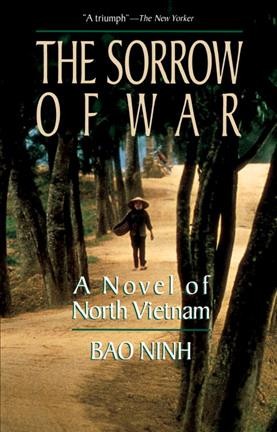 Bao Ninh features prominently in Ken Burns and Lynn Novick’s series on the Vietnam War. Ninh is a Vietnamese writer and former North Vietnamese soldier. Ninh’s novel,
Bao Ninh features prominently in Ken Burns and Lynn Novick’s series on the Vietnam War. Ninh is a Vietnamese writer and former North Vietnamese soldier. Ninh’s novel, 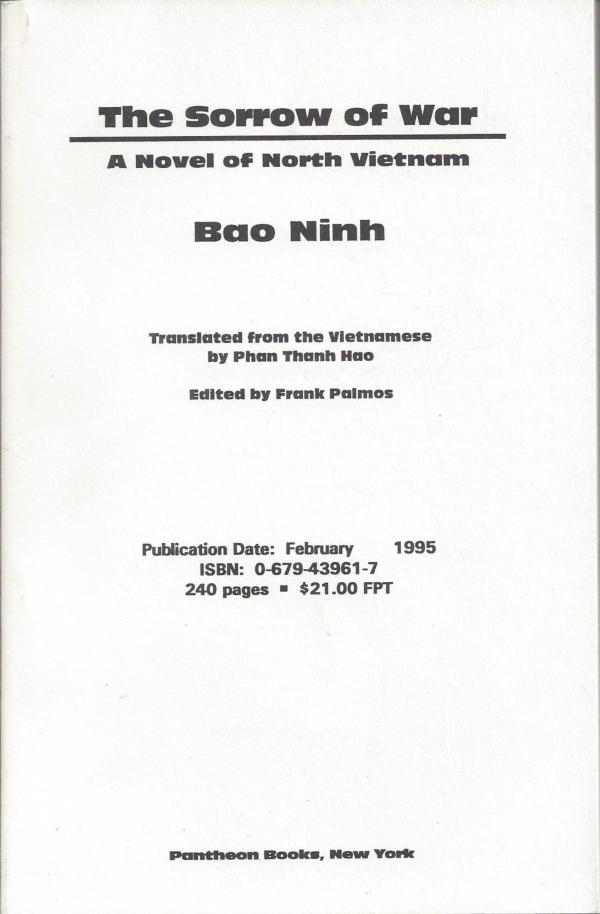 First published in Vietnam in a low-budget format by the Writers Association Publishing House of Hanoi in 1991, the book was translated into raw English by Phan Thanh Hao and rewritten by Australian war journalist and author Frank Palmos. At this point, the English translation was given the title “The Sorrow of War” and was published in Great Britain by Secker and Warburg in 1993 and in the United States by Pantheon in 1995.
First published in Vietnam in a low-budget format by the Writers Association Publishing House of Hanoi in 1991, the book was translated into raw English by Phan Thanh Hao and rewritten by Australian war journalist and author Frank Palmos. At this point, the English translation was given the title “The Sorrow of War” and was published in Great Britain by Secker and Warburg in 1993 and in the United States by Pantheon in 1995.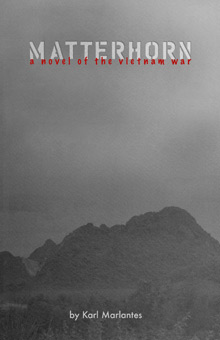 Karl Marlantes found a publisher in El Léon Literary Arts, a small press privately funded through donations. Led by author Thomas Farber, the operation is known to run on a $200 a year travel and entertainment budget and publishes literary works that might not seem commercially viable by mainstream publishers. By the time the 700-page Matterhorn was printed in softcover and review copies were sent out, a group of booksellers got the attention of El Léon by submitting Matterhorn to a first-novel contest. Soon Farber began getting calls from larger publishers. Eventually, a deal with the independent press Grove Atlantic was made and Matterhorn was released in hardback in 2010. Behind the scenes, Grove Atlantic’s Morgan Entrekin championed Matterhorn to booksellers across the country. The success of Matterhorn is due to the perseverance of its author, small presses, and the diligence of booksellers. It is a story of authenticity as opposed to overblown media hype.
Karl Marlantes found a publisher in El Léon Literary Arts, a small press privately funded through donations. Led by author Thomas Farber, the operation is known to run on a $200 a year travel and entertainment budget and publishes literary works that might not seem commercially viable by mainstream publishers. By the time the 700-page Matterhorn was printed in softcover and review copies were sent out, a group of booksellers got the attention of El Léon by submitting Matterhorn to a first-novel contest. Soon Farber began getting calls from larger publishers. Eventually, a deal with the independent press Grove Atlantic was made and Matterhorn was released in hardback in 2010. Behind the scenes, Grove Atlantic’s Morgan Entrekin championed Matterhorn to booksellers across the country. The success of Matterhorn is due to the perseverance of its author, small presses, and the diligence of booksellers. It is a story of authenticity as opposed to overblown media hype.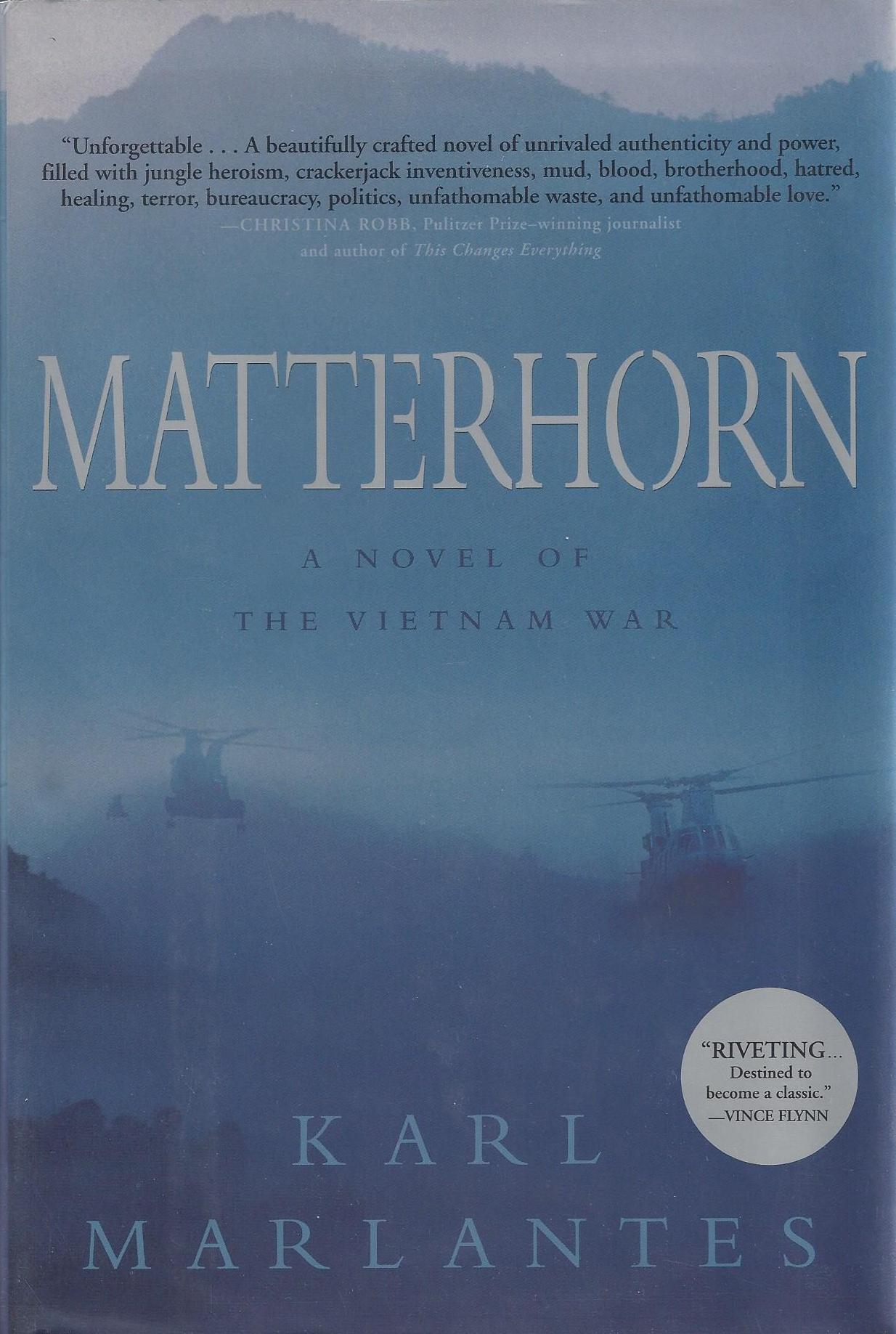 This authenticity leads to a collectible book. The copies of Matterhorn printed in softcover at El Léon became advanced copies for Grove Atlantic’s hardcover edition. For collectors, that softcover is the true first edition. Matterhorn follows in the tradition of other great war novels like Norman Mailer’s The Naked and the Dead and James Jones’ The Thin Red Line.
This authenticity leads to a collectible book. The copies of Matterhorn printed in softcover at El Léon became advanced copies for Grove Atlantic’s hardcover edition. For collectors, that softcover is the true first edition. Matterhorn follows in the tradition of other great war novels like Norman Mailer’s The Naked and the Dead and James Jones’ The Thin Red Line.